All products featured are independently chosen by us. However, SoundGuys may receive a commission on orders placed through its retail links. See our ethics statement.
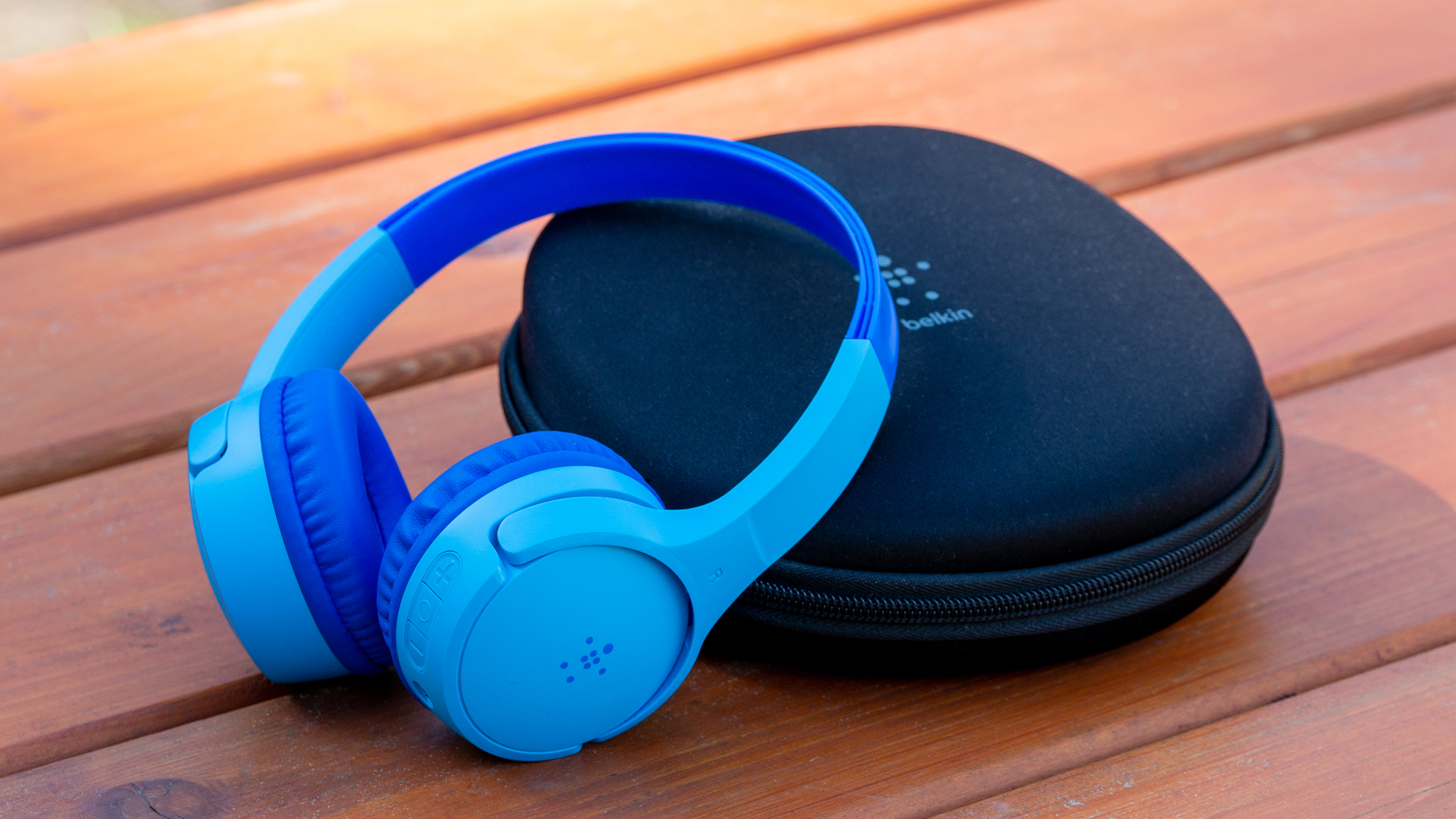
Belkin SoundForm Mini review
Published onApril 14, 2023
Belkin SoundForm Mini
Reaching for a trusted brand when making a purchase is often a good play, but with headphones the results can be a mixed bag. Does the Belkin SoundForm Mini make its case for your dollar? Let’s find out.
What you need to know about the Belkin SoundForm Mini
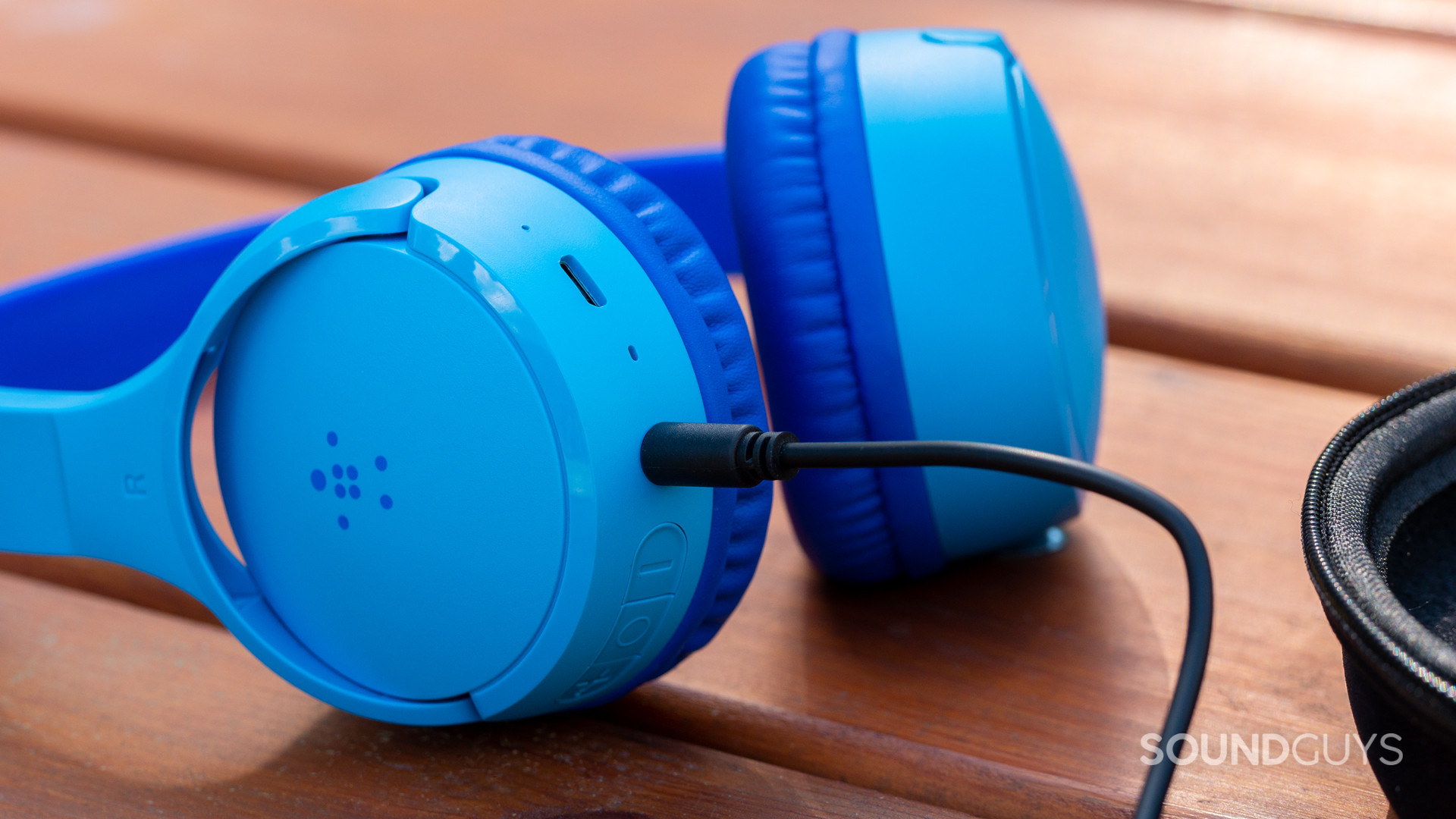
Belkin SoundForm Mini: $39.99 USD / $39.99 CAD / £22.99
The Belkin SoundForm Mini is a set of on-ear kids headphones that comes in several colors to suit the tastes of whoever you’re buying for. In the packaging comes a case, USB-A to microUSB charging cable, sticker sheet, and the headphones. Representing Belkin’s only kids headphones, this is the only entry in its lineup that advertises volume limiting by default. Beyond the ability to listen wirelessly, you can also use the headphones to listen to wired sources via a 3.5mm jack cable.
The headphones do not offer anything else in the way of special features, so this is a very basic product. It’s meant to fill the role of “cheap-ish headphones you can give to kids to abuse for a few years,” so any assessment of this product should be viewed through this lens. They’re not going to make your kid an audiophile or anything close.
What’s good about the Belkin SoundForm Mini?
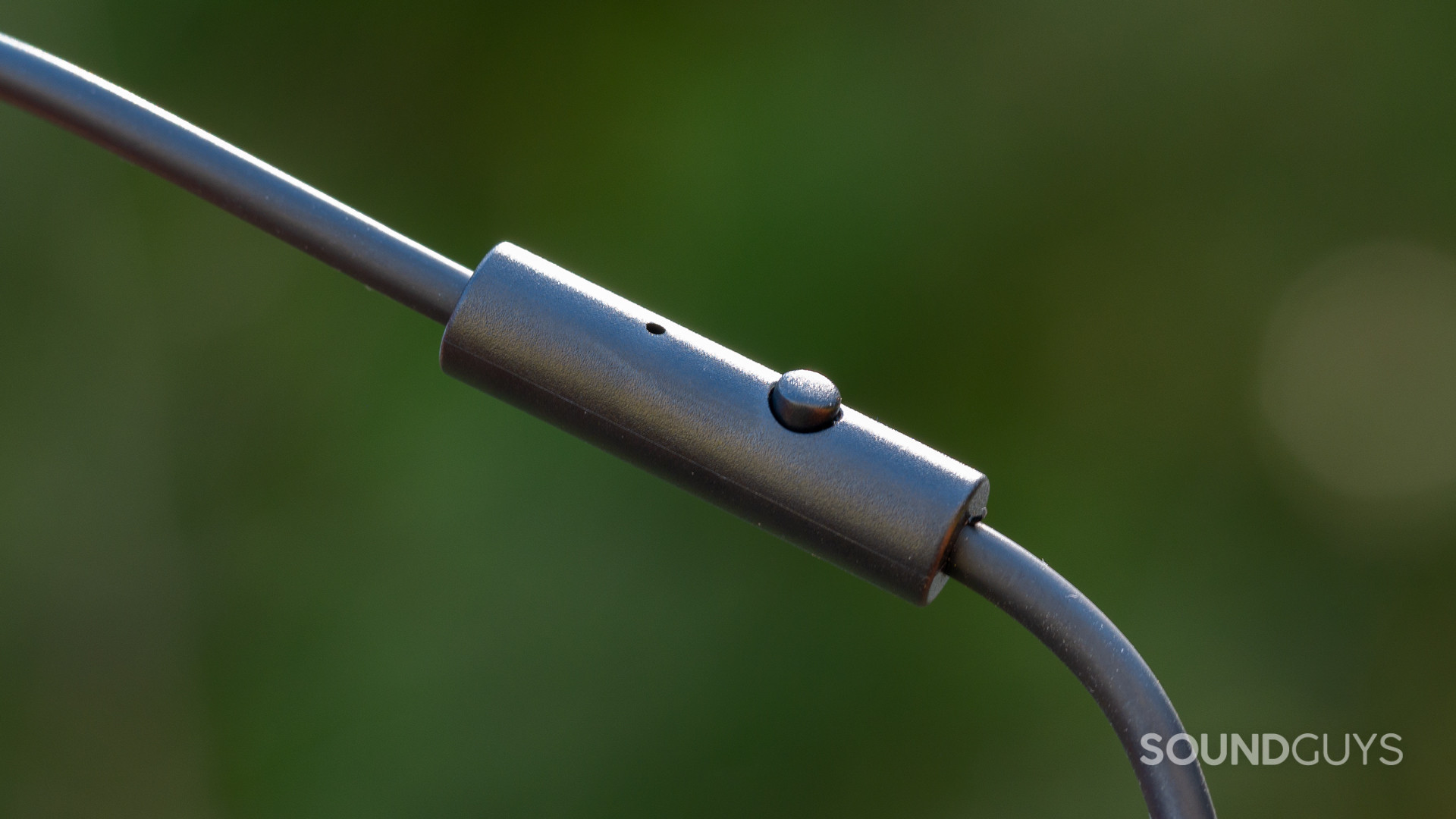
If you’re looking for good things about the Belkin SoundForm Mini, it’s mainly limited to the included sheet of stickers, and the battery life—that’s the main reason to buy this headset. While the praise for the stickers may sound a little weird, as a parent I assure you having some way to identify your kid’s stuff is invaluable if they regularly take items to school.
Using music real music playback peaking at 75dB, we were able to squeeze 81 hours and 55 minutes of listening time out of the Belkin SoundForm Mini. While that is a phenomenal result, we have a sneaking suspicion that most kids will try to crank the volume in order to hear more bass, making this result a little less likely in practical use.
Beyond the battery life, the main reasons someone would be convinced to buy the Belkin SoundForm Mini are pretty much relegated to aesthetics and price. Admittedly, the dual-tone monochrome plastic works pretty well to capture the eyes of younger folk as the headphones don’t look too cheap or kiddy, but it’s hard to avoid the inexpensive construction and design. The button controls on the right ear cup are straightforward and recessed enough to sit flush with the housing, meaning accidental inputs shouldn’t happen often.
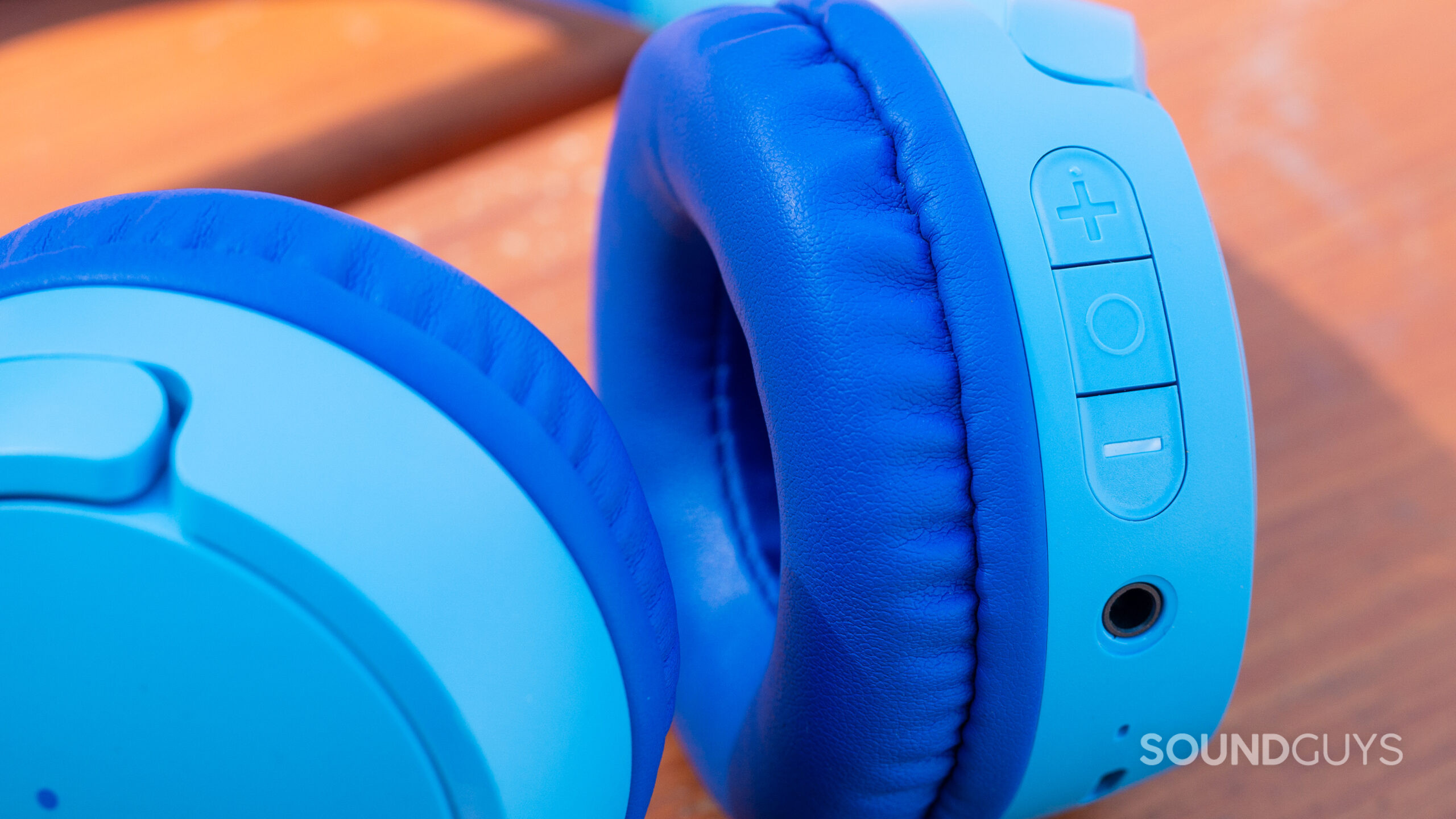
Controls for the Belkin SoundForm Mini are remarkably straightforward, as they’re very limited in terms of how you can input commands.
| Button | Volume up / down | Multifunction |
|---|---|---|
| Button Single press | Volume up / down Volume | Multifunction Play / Pause, Answer / end call |
| Button Double press | Volume up / down N/A | Multifunction Voice assistant |
| Button Long press | Volume up / down Track forward / backward | Multifunction Reject call |
The fact that the Belkin SoundForm Mini has a microphone is a decent addition for users with a smartphone, though the comparatively small size of the headphones means that they’re going to appeal to the absolute youngest segment of smartphone users. Nowhere is this made more obvious than the band of the Belkin SoundForm Mini, as it is very much designed for the heads of middle schoolers and younger.
What’s not so good about the Belkin SoundForm Mini?
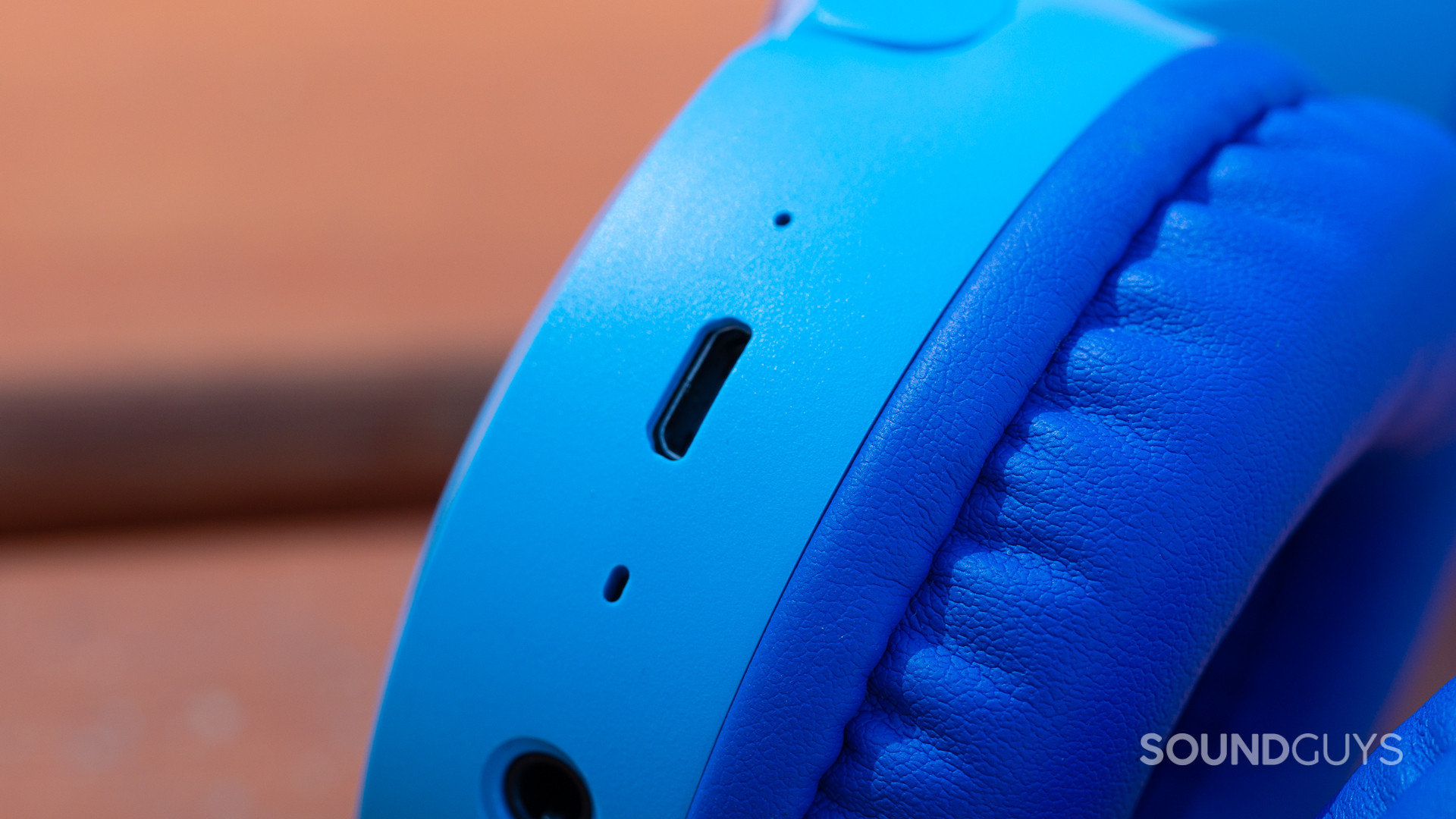
As far as the bad news about the Belkin SoundForm Mini goes, the volume limiter doesn’t work as expected in every mode, and the sound quality isn’t good, which kind of defeats the whole purpose of buying a set of kids headphones. Additionally the microUSB port—while a perfectly functional connection—is outdated and often requires a separate charger to use unless you have any other older electronics using that standard. On long trips, that’s a bit of a hindrance if you can’t use the same cable for all your devices, and USB-C has long supplanted the ancient microUSB.
We were unable to confirm that the advertised volume limiter was working to restrict the output to the expected safe level in the lab with either a wireless or wired connection. Using our standard test signal, the Bluetooth test recorded a maximum volume of 98dB (SPL), and our wired test rang up to 109.3dB (SPL). Neither of these results are below the listed 85dB target.
We weren’t surprised to see the sound quality suffer a bit because that’s part and parcel with on-ear headphones. However, significant clamping force means is that your child may have difficulty in fitting the headphones to wear comfortably to get a good sound. In situations like this, many people will instinctively turn up the volume to hear the “missing” bass—only to find it can’t be heard unless you really crank it.
Normally this wouldn’t be much of an issue with volume-limiting headphones, as there’s only so loud you can go. However, the volume limiter of the Belkin SoundForm Mini didn’t appear to be working in our lab, so this is much more of a concern.
Not great!
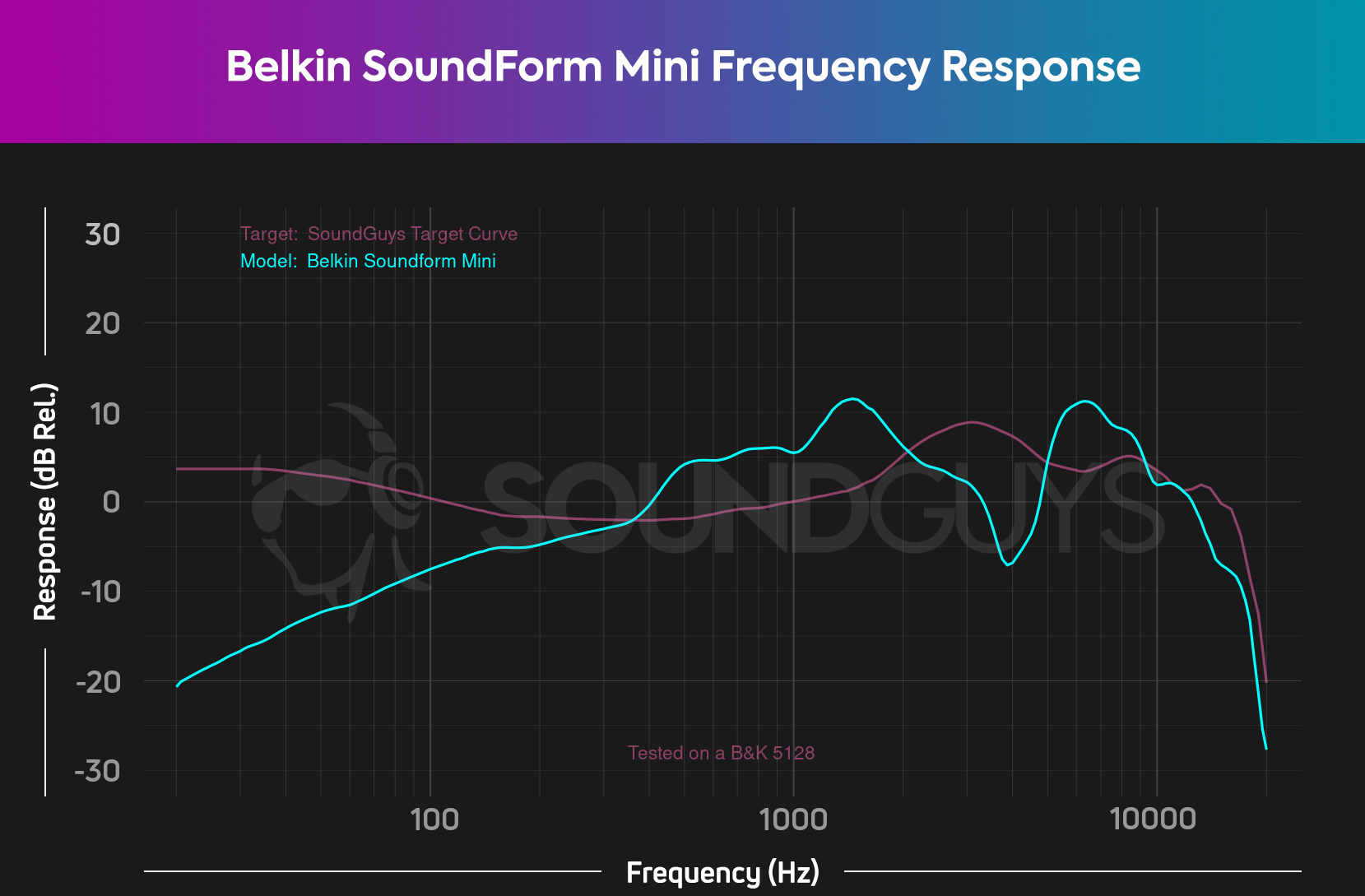
The frequency response of these headphones is a long way off from what we expect to see. Bass is very poor, as measured at the ear drum, and the comparatively loud midrange will sound very odd to any listener. There’s also a significant underemphasis in the frequency range needed for good speech intelligibility, so listeners may find it difficult to understand voices in the presence of noise. Kids may not be picky, but we still don’t recommend this.
To compound the issue, we also often look to our isolation test to see how well the outside world is blocked from a listener’s ear while they’re wearing a product. Here, too, the Belkin SoundForm Mini is disappointing. The on-ear design opens listeners up to a lot of tradeoffs, and poor isolation will be very difficult to avoid even on a good day.
Not particularly.
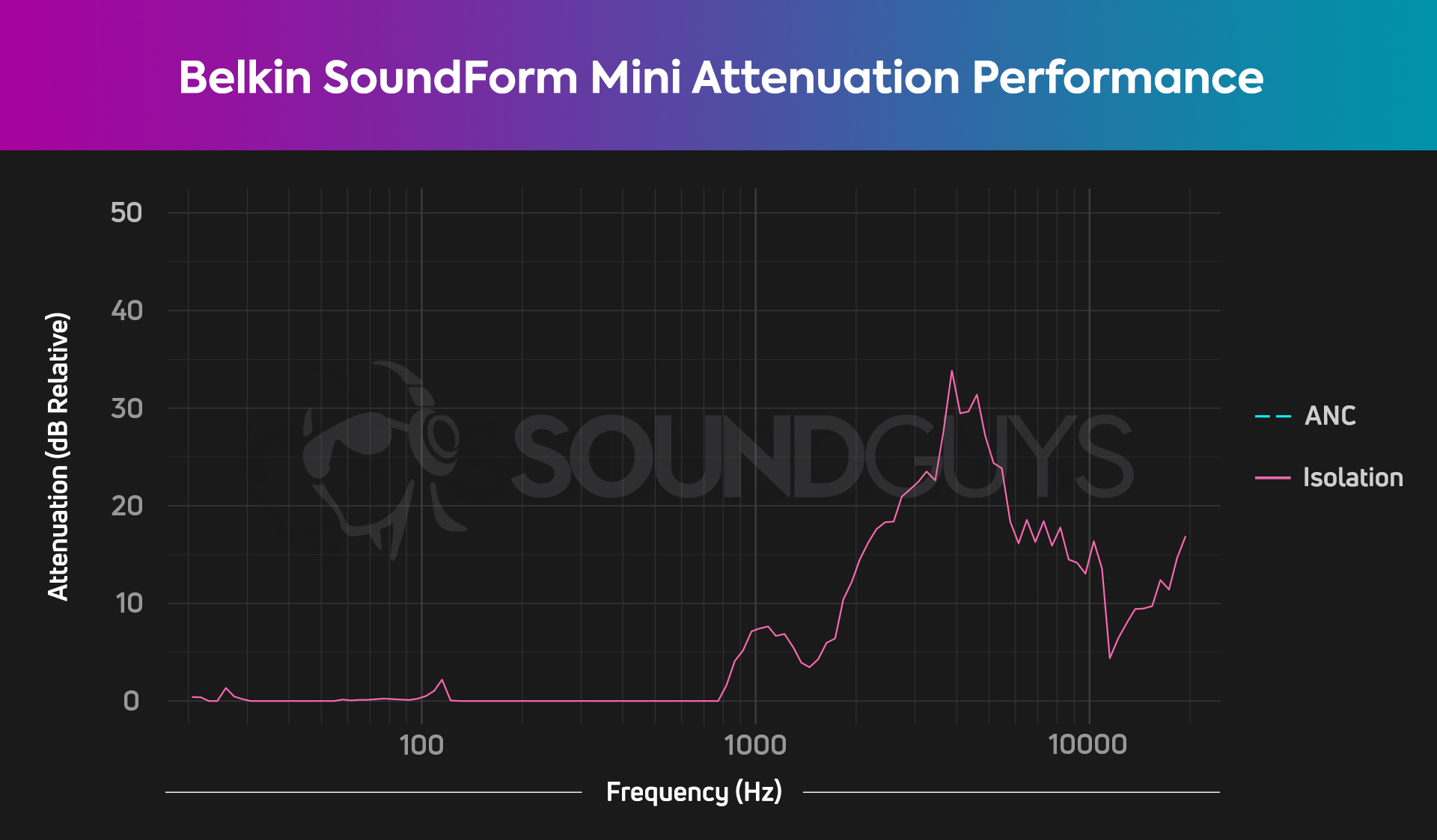
The Belkin SoundForm Mini struggles to block outside noise from reaching the ear, only providing notable isolation above 2kHz—which is quite high-pitched compared to much of the annoying noise you’d run into on a city street or bus.
The Belkin SoundForm Mini doesn’t really offer much in the way of features or performance that would justify its price over competing options, aside from its freakishly good battery life. But that’s enough for some people!
Belkin SoundForm Mini specs
To provide a meaningful comparison with other competing headsets, please keep the following specifications of the Belkin SoundForm Mini in mind when doing your homework.
| Belkin SoundForm Mini | |
|---|---|
Size | Headphones: 8mm Case: 10 x 10 x 10 mm Cable: 1.5m |
Weight | Headphones: 133g Case: 130g |
Noise canceling | No |
IP certification | No |
Connection | Bluetooth 5; SBC, AAC |
Controls | Button |
Battery life | 81 hours, 52 minutes |
Fast charging | No |
Wireless charging | No |
Connector | microUSB |
Price | $39.99 USD |
Belkin SoundForm Mini review: Should you buy it?
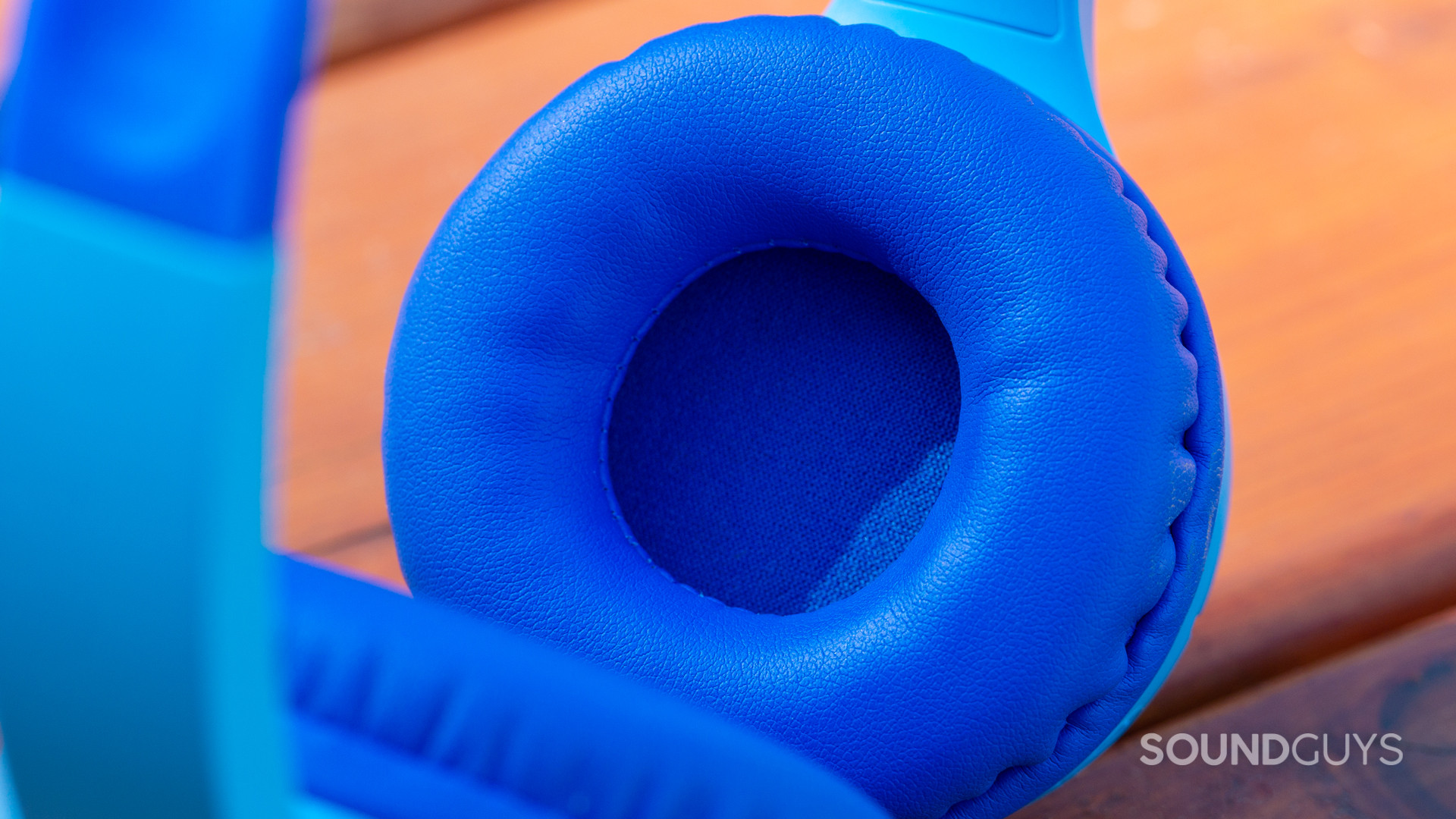
The Belkin SoundForm Mini isn’t a good value buy. We try to identify a prospective buyer who will like any of the headphones we review. This model has enough wrong with it that we just can’t recommend it, unless there’s literally nothing else on the shelf.
It doesn’t work as advertised, and to be frank: other headphones are better for less, and also limit volume. There’s no need to overthink this one. Get something else, like the JLab JBuddies Studio Wireless. That model of headphones is about the same price, but sounds (and isolates) better, and also has a better-functioning volume limiter. For a step up, check out Puro Sound Labs’ headphones, as those will have better sound and build quality—at the tradeoff of a higher price.

Frequently asked questions
Included stickers with headphones are not only fun for kids, but they serve the purpose of personalizing their things in a way that’s not easy to remove. While that may sound a little weird to point out, it’s a nice touch that helps avoid some conflicts between siblings/friends.
“Safe” is a relative term, but for kids, fewer things can go wrong with Bluetooth headphones than wired. As a parent that’s watched both of his children try to climb on top of a blanket fort (and get mad when it simply collapsed before they could get on top), I can say with authority that children aren’t really the best judge of doing something safely. Removing the wire removes a potential tangling or (God forbid) strangulation risk for a tot.